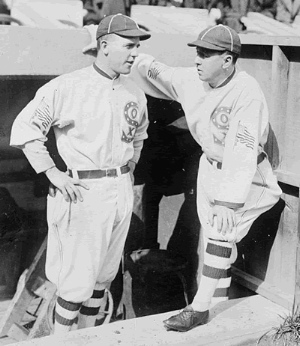I’m writing from Eugene. Kate and I are on a quick jaunt up to see Thom. We’ve got an extra hour of sleep tonight, thanks to the end of daylight saving time. And tomorrow, an hour less afternoon light on the trip home. That’s OK. I’ll take the extra hour of sleep.
Let it be noted that after next year, the appointed dates for falling back (and springing ahead) will be changed as part of the new energy law passed and signed earlier this year. Beginning in 2007, clocks will be turned forward the second Sunday of March (instead of the first Sunday of April) and turned back on the first Sunday of November (instead of the last Sunday of October).
Compulsively scrabbling for a little daylight-saving history, I note that 2007 will also be 100th anniversary of the publication of the pamphlet that eventually led to adoption of seasonal clock changing. A well-known London architect and builder named William Willett proposed the scheme in his cheerily titled “The Waste of Daylight.” Willett described the ill he wanted to cure:
“… For nearly half the year the sun shines upon the land for several hours each day while we are asleep, and is rapidly nearing the horizon, having already passed its western limit, when we reach home after the work of the day is over. Under the most favourable circumstances, there then remains only a brief spell of declining daylight in which to spend the short period of leisure at our disposal.
“Now, if some of the hours of wasted sunlight could be withdrawn from the beginning and added to the end of the day, how many advantages would be gained by all, and in particular by those who spend in the open air, when light permits them to do so, whatever time they have at their command after the duties of the day have been discharged.”
He conceded that simply turning the clock ahead an hour might be a bit abrupt, and he thought a change of 80 minutes (instead of the 60 we’ve wound up with) would be more beneficial to society. So he suggested that at 2 a.m. on four consecutive Sunday mornings in April, clocks be turned ahead 20 minutes. The clock would be turned back again over four Sundays in September.
Willett managed to attract the attention of a prominent member of Parliament who championed his idea, but bills to put it into effect went nowhere. Willett died in 1915. The following year, after noticing that its World War I opponent Germany had adopted a daylight-saving scheme of its own, Britain started using Willett’s system.
(The history is well summarized at a site called WebExhibits. And a recently published book, “Seize the Daylight,” appears to tell Willett’s story at length; amazingly (I’m amazed, anyway), another book on the history of daylight saving was published the very same week: “Spring Forward: The Annual Madness of Daylight Saving“).
Now, with 2 hours and 28 minutes to go before the clock runs backward, I’m going off to enjoy my extra hour of fall-back sleep.

